How background checks on popular dating apps and websites work
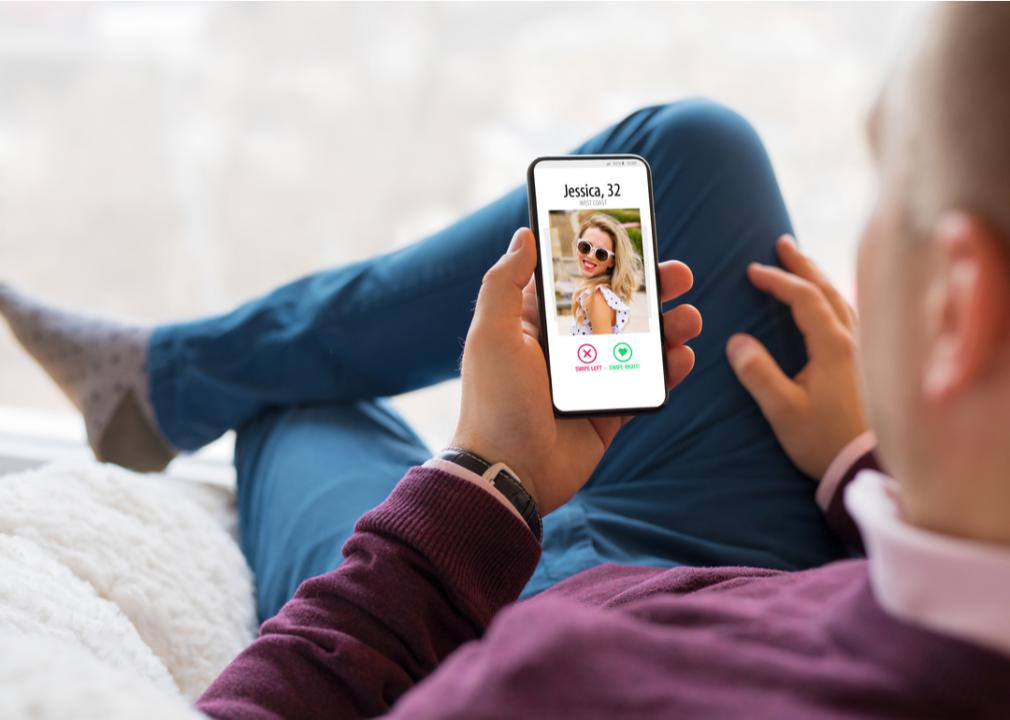
Kaspars Grinvalds // Shutterstock
How background checks on popular dating apps and websites work
The state of love since the COVID-19 pandemic began has shifted drastically, with mobile and online dating sites all reporting sharp increases in their usage. OkCupid saw a 700% increase in dates from March to May 2020, Bumble video calls and Zoom-based dating in general increased exponentially, and Tinder recorded its highest number of swipes on one day at over 3 billion. That’s a lot of love in the air.
Still, people only know what their potential paramour has revealed about themselves on a first date. In a perfect world, everyone tells the truth, but we know that’s not always the case: One study found 81% of online daters misrepresented some aspect about themselves, be it height, weight, or age. While an inch or two is not going to hold most people back from true love, outright lies about their identity, relationship status, or criminal record might.
Further, there are crimes that have to do with matters of the heart on the apps themselves. “Tinder Swindler,” a popular Netflix documentary, follows the true story of a man who allegedly conned $10 million from several women. While a single crime of this magnitude is unique, the amount is not—there is an epidemic of violence on dating apps. The Federal Trade Commission says phishing and dating scams on internet apps cost victims $304 million in 2020, double the amount of the previous year.
Historically, victims have only had police reports and the FBI’s Internet Crime Complaint Center to tell someone about these complex and often international crimes, so it makes sense more dating apps are taking background checks and user verification seriously—but not all do. While dating online is full of hope and promise, there are measures you and the apps themselves must take to ensure your potential future soulmate is a person that you safely and securely spend time with.
With that in mind, Top10.com researched the background check and user verification processes for 10 of the internet’s most popular dating apps and websites.
![]()
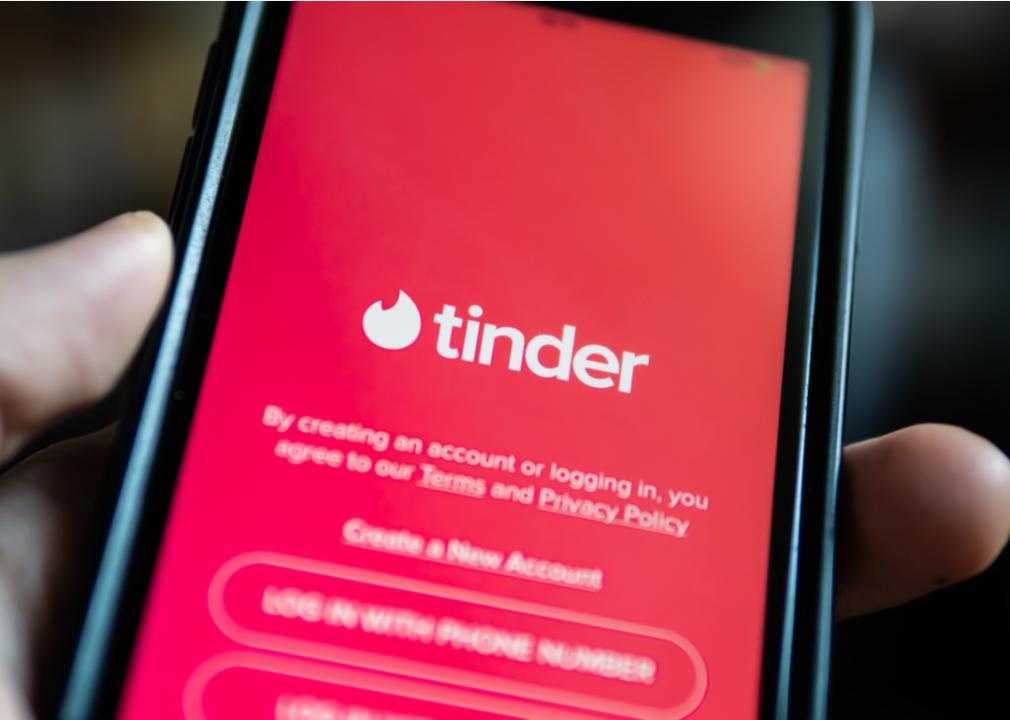
Wachiwit // Shutterstock
Match Group
Match Group includes a suite of dating brands with over 11 million paying users as of May 2021 that includes Tinder, Match, BlackPeopleMeet.com, OkCupid, Hinge, Pairs, Plenty of Fish, and OurTime.com. The company announced in March 2021 a partnership with nonprofit background check technology Garbo, which was founded by a female survivor of gender-based violence. The app provides historical information about domestic violence and abuse to empower members to make more informed decisions about who they choose to meet.
Garbo doesn’t include drug possession or traffic violation offenses since those affect marginalized groups disproportionately. Garbo says an upcoming app will be available for download, but for the time being, users can perform two searches for free if they have accounts with dating apps like Tinder.
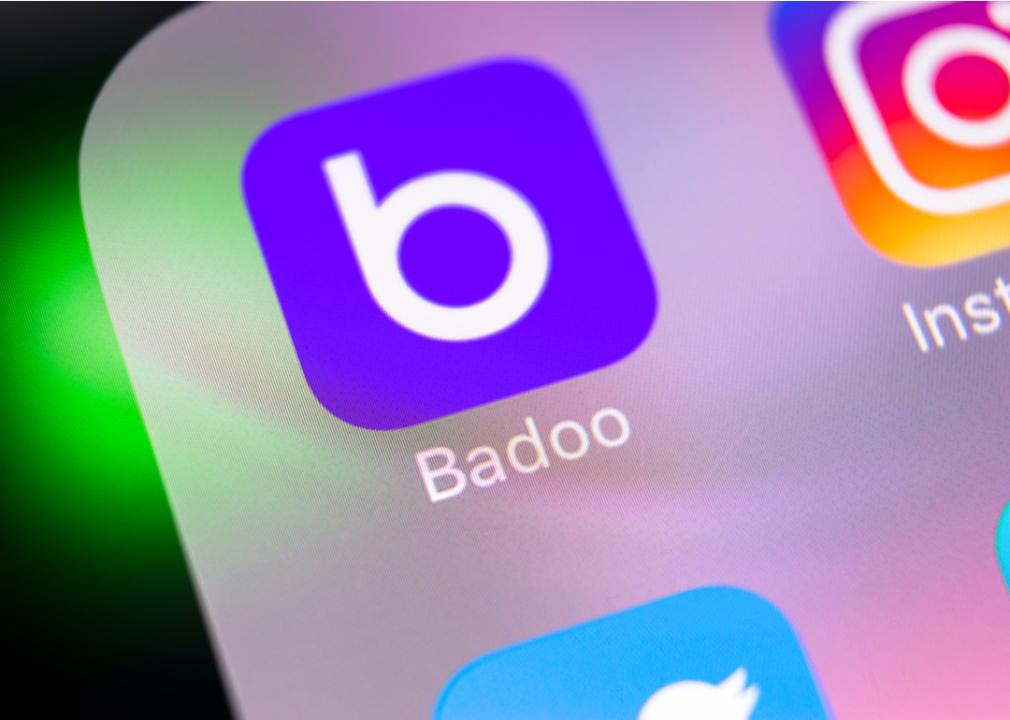
BigTunaOnline // Shutterstock
Badoo
If you’re a millennial woman with a cellphone, it’s an unfortunate fact that you most likely have been sent a picture you didn’t want to see. A 2017 survey from market research company YouGov found that more than half of millennial women have received a nude photo from a man; 78% of those women received an explicit image without their consent. Badoo, with over 318 million users in 190 countries, combats this violation by using artificial intelligence to sense and automatically blur these images, with an option to unblur if the user wishes.
Badoo’s terms of service also include the option to verify your profile picture to reduce the likelihood of catfishing. The app makes sure the person is legitimate by having users take an image in a unique pose to verify. Badoo also allows users to further verify using a phone number or social network account and marks verification on their profile with either a blue checkmark on a white background or a white checkmark on a blue background, depending on the levels of verification each user went through.
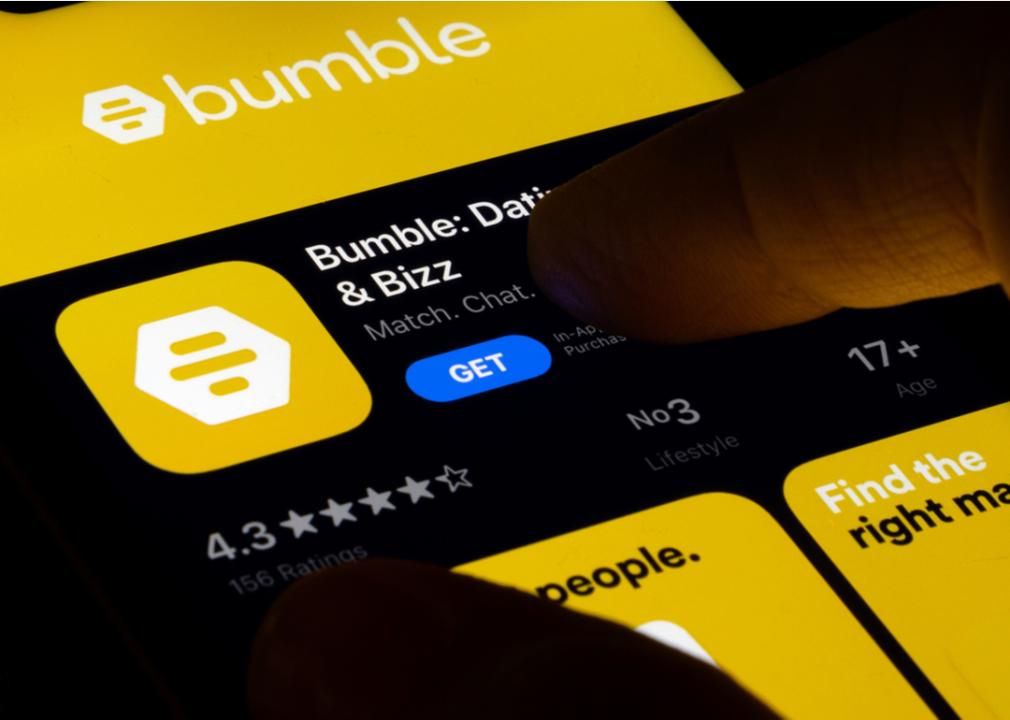
Boumen Japet // Shutterstock
Bumble
With more than 100 million users as of 2020, Bumble is as popular as it is unique. The app takes a different approach to the old rules of dating by giving women the power to make the first move. The app only allows them to send the initial message to matches found on the site. This main gimmick does not apply to LGBTQ+ dating: for queer relationships, it’s anyone’s ball game. Regardless, all messages will disappear if nobody replies or messages in the first 24 hours.
In addition, Bumble uses a combination of artificial intelligence and human-led monitoring systems to review accounts and messages for violations of their terms of service. These include imagery or language that discriminates against someone’s race, ethnicity, disability, gender expression, and a range of other criteria.
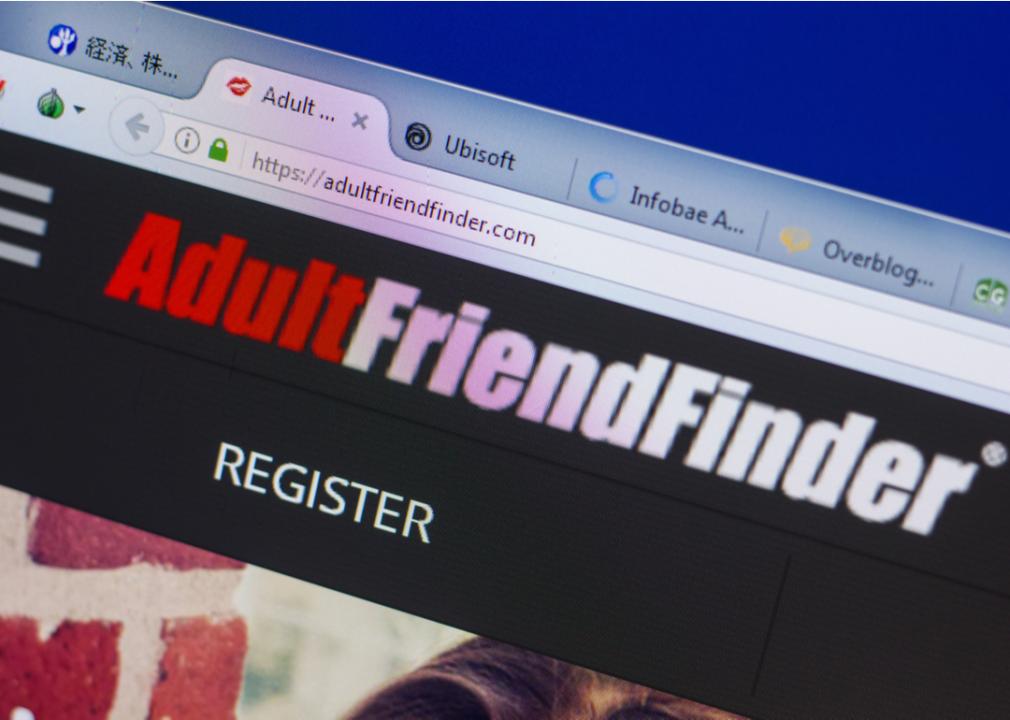
Sharaf Maksumov // Shutterstock
AdultFriendFinder
With over 8 million users worldwide, 2 million active weekly users, and a proclivity toward adult content, the dating and hookup app AdultFriendFinder is taking a different approach toward its terms of service. Since eroticism is part of the selling point, users are told they should expect to see adult themes and images, although AdultFriendFinder’s terms of service restrict the posting of violent or offensive content on the app. AdultFriendFinder also restricts unlawful content or imagery, or content that is harmful, threatening, abusive, racially, ethnically, or otherwise objectionable—all to the discretion of moderators.
When it comes to background checks and criminal background screenings on users or members, AdultFriendFinder doesn’t do it. In fact, they mention this fact three separate times in their terms of service, so users should take caution when sharing background information, photographs, and other identifying details. AdultFriendFinder restricts unsolicited advertising, promotional materials, and other commercial solicitation in addition to restricting harassment, unwanted advances, and stalking. While users are to accept sole responsibility for their own interactions with other users, users have recourse to report account abuse via their website, and moderators are also looking out for abnormal behavior on the site.

Gustavo Frazao // Shutterstock
MenNation
With more than 100 million users around the world including in Australia, Canada, Europe, and the United States, MenNation is a website for gay men or couples looking for casual relationships. Although MenNation is one of the earliest gay dating sites, they say 900,000 new users still join every month.
MenNation is a sister site of AdultFriendFinder, meaning that if you are a man (or gay couple) seeking men on AdultFriendFinder, users on MenNation can search for queer men on AdultFriendFinder, so users should note this when signing up for either website. Users can also pay to be a gold member of MenNation, and as a premium user, you may opt out of receiving messages from free members, weeding out potential spam and phishing scams, common on gay adult-oriented websites. As a sister site to AdultFriendFinder, they also state in their terms of service that they do not do background checks at all, warning that users are solely responsible for their interactions with other users.
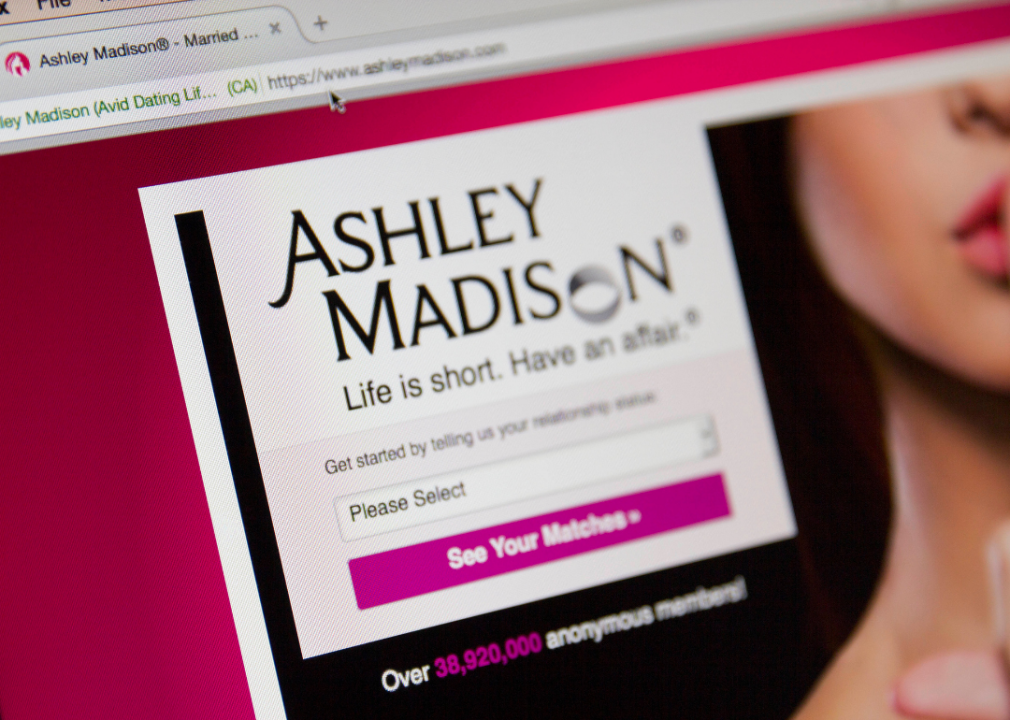
NurPhoto // Getty Images
Ashley Madison
Upon joining the married dating website and app Ashley Madison, its over 70 million estimated users are greeted with very clear text: “Life is short. Have an affair.” Ashley Madison makes its intentions known from the beginning. Upon first reading the terms of service, by accepting these terms members agree to be joining like-minded individuals with an “interest in the idea of monogamy not being the answer to everybody’s problem,” according to Paul Keable, Ashley Madison’s chief strategy officer.
Because of the sensitivity around having an affair, whether consensually as a form of open marriage play or through conventional cheating on a monogamous partner, user verification and background checks are counterintuitive to the goal of Ashley Madison. Because of this, users are allowed to sign up with brand new email addresses, and they are allowed to pay for the website through PayPal, credit card, or gift card remittance, making user interactions potentially totally anonymous. That is why on their FAQ page, Ashley Madison warns against sharing personal information publicly in your profile, pictures, or username.
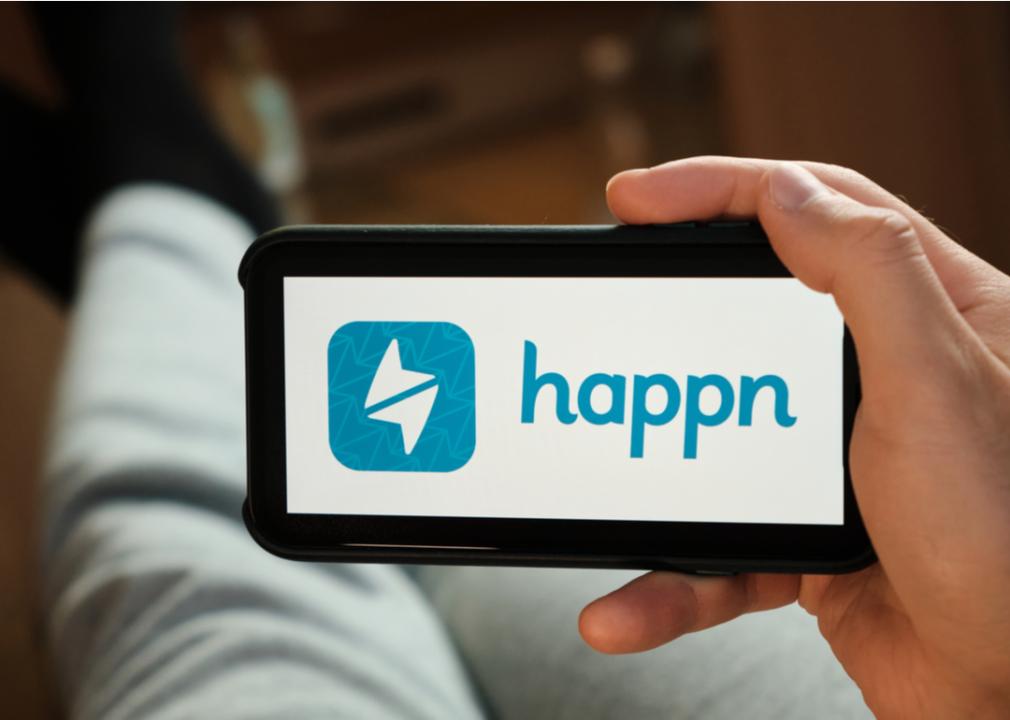
Vladimka production // Shutterstock
Happn
This next app takes the idea of missed connections and turns the concept on its head, making it a kind of dating game where anything can happen, so to speak. Since 2014, Happn has been a unique dating app in that it activates for its 100 million global members only if they are nearby each other in real life.
After passing each other, users will get an alert and gain access to others’ profiles. If interested, they can click a little red heart on each profile. If both users’ red hearts are tapped, they can then chat through the app. People are regularly interacting with potential love interests they may have physically seen before with Happn, differing from the typical way other dating apps and websites have traditionally worked.
Similar to Badoo, Happn users have the opportunity to certify their profiles by taking a video posing with unique head gestures, as instructed by the app. Happn then uses biometric data to compare the video to any user’s profile photo. Once the user completes the process, the profile is certified on the app and receives a badge so others know the account has been verified. This process is not required to use the app. While Happn claims noncertified profiles are not fake, they do not provide any additional background on whether a vetting process exists for noncertified profiles.
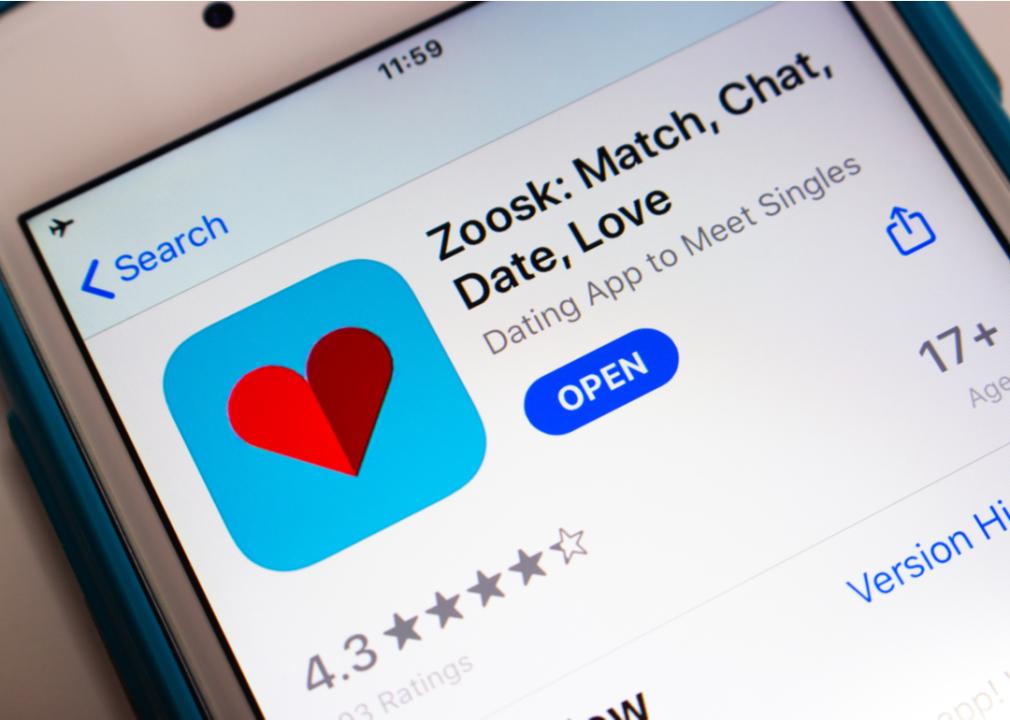
Koshiro K // Shutterstock
Zoosk
Zoosk is a dating app website for those looking for love with service in over 80 countries and in 25 languages. With over 40 million members worldwide, Zoosk reaches far, and the organization even runs a blog showcasing engagements facilitated by the app.
When signing up for Zoosk, prospective users must agree that they are at least 18 years old, have no sexual criminal offenses on their records, and have not been previously suspended from Zoosk’s services, among other requirements. New members are instructed not to publicly include telephone numbers, street addresses, social media, or other contact information in their profile to be publicly viewable for their protection.
Additionally, it suggests users shouldn’t include their last name in their dating profile and use caution if they decide to share private information with other users. Zoosk also provides online dating safety tips for people new to dating online. Although, in those tips, it’s suggested that users do their own research on potential suitors because Zoosk asserts it does not “routinely screen our members, inquire into the background of our members, attempt to verify information provided by our members, or conduct criminal screenings of our members.”

Michael Gordon // Shutterstock
Eharmony
Easily one of the most well-known dating sites, 22-year-old eharmony prides itself as a leader in the online dating scene. Eharmony had more than 10 million users in 200 countries as of 2021, and eharmony has been known for facilitating successful relationships and eventual marriages through meeting fellow singles on the site. In eharmony’s terms of service, it’s required that you are at least 18 years old to register and must be single or legally separated. In fact, eharmony further notes that if a prospective user is married and not separated, the user may not use its “Singles Service.” This may help to dissuade users who aren’t serious about finding monogamous relationships.
While other dating services have more lax rules about profile pictures, eharmony’s terms of service require new users to upload clear photos of themselves, and it will reject images that are blurry or altered. They also suggest new users post recent photos only because, as they say, “No one wants to feel catfished.” While the dating service does not conduct an official background check, it does provide users with an 80-question survey to narrow in on the specificity of the website’s services.
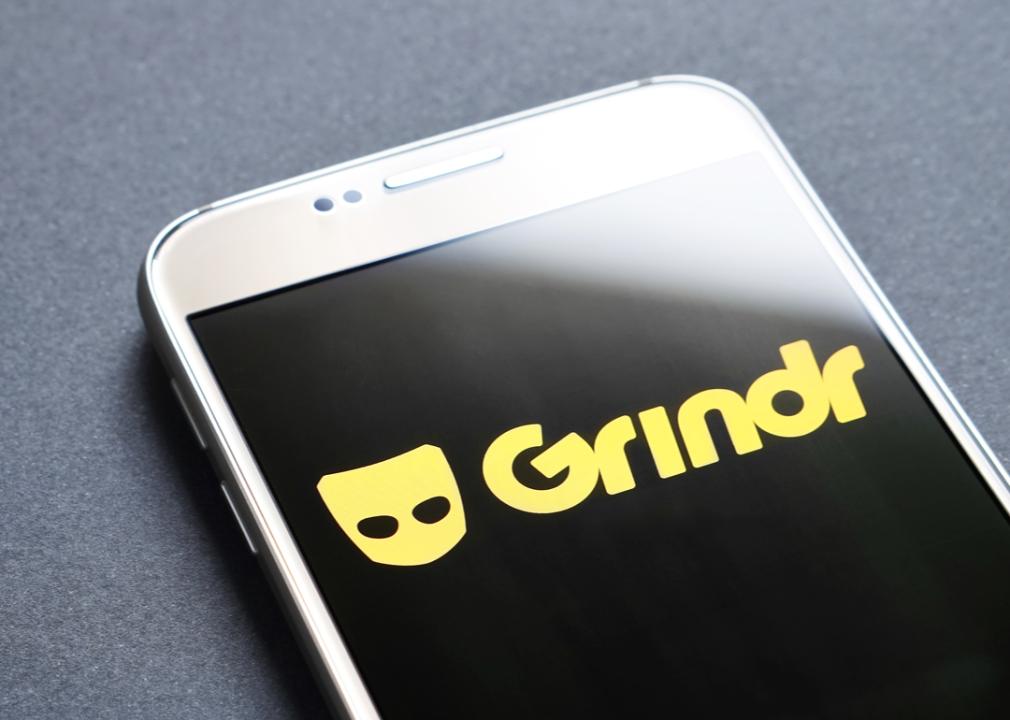
Tero Vesalainen // Shutterstock
Grindr
With over 13 million users in 192 countries worldwide, the dating app Grindr is where gay, bisexual, or bi-curious folks can meet others in the queer community seeking love or casual fun. Grindr works by showing profiles within an account holder’s area using location-based data and organizing profiles by distance from the user. This means those users can see where other users are in relation to them from “miles away,” down to 100 feet. In the public sphere, it’s mostly known as an app for gay men, but Grindr welcomes users of all gender identities, although, of their daily user base, most identify as cis gay men.
Grindr’s terms of service require users at least 18 years old (or older in states and countries where the legal age of adulthood is higher, like in Japan or New Zealand) to join or view profiles on the app as adult images and themes are regularly shared. Grindr notes in its terms of service that it does not conduct criminal or other background screenings of its users and doesn’t verify the information users provide. This includes information about users’ identity, health, or physical condition.
This story originally appeared on Top10.com
and was produced and distributed in partnership with Stacker Studio.